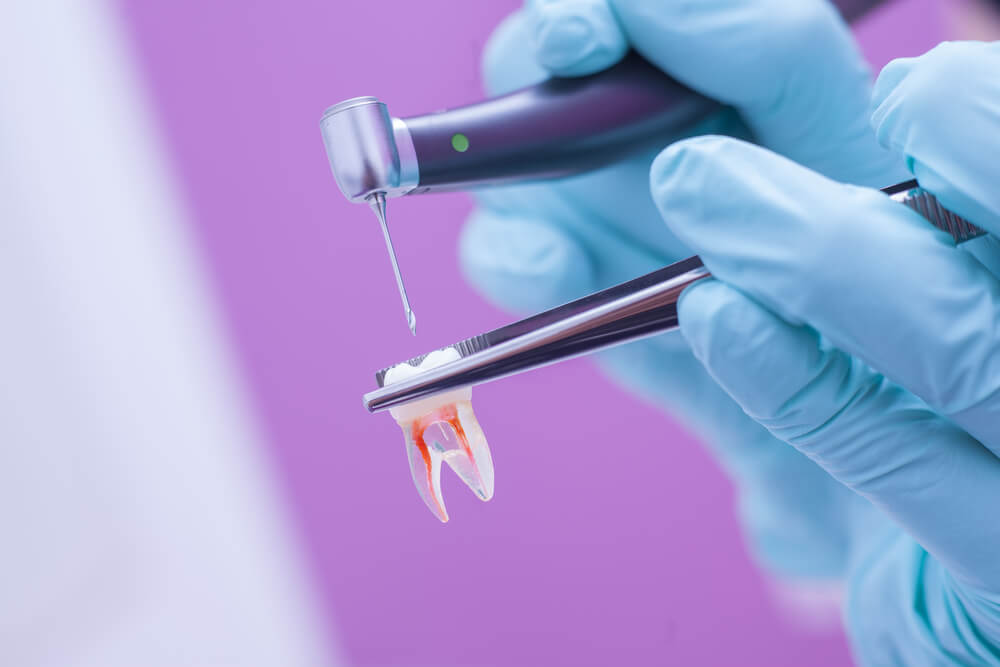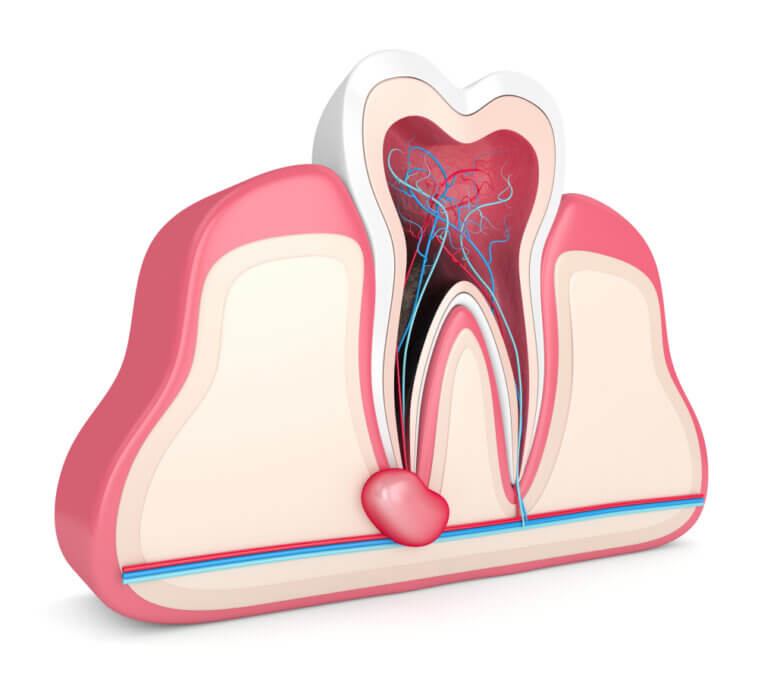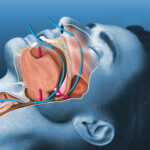Table of Contents
This article will discuss the symptoms of tooth nerve damage and possible treatments. The causes, underlying conditions, and prevention of tooth nerve damage are also discussed. Nerve damage can be an incredibly painful problem, but if you're concerned that you may have it, you'll be glad to know there are many ways to prevent or treat it. The following are some of the most common causes of tooth nerve damage, as well as some tips and tricks for repairing your own tooth.
Treatments

Root canals and fillings are two common dental procedures for treating tooth nerve damage. While these dental procedures may not cure the root canal, they are effective in repairing the tooth and preventing further damage. The most important factor in preventing tooth nerve damage is proper dental hygiene. The best way to prevent tooth nerve pain is to practice good dental hygiene and avoid cavities and trauma to the mouth. However, there are some preventive measures you can take at home.
One dental treatment for tooth nerve damage is pulpotomy, a procedure that removes the damaged or infected nerve inside the tooth. This procedure is most commonly performed on children with infected primary teeth, which hold space for permanent teeth. This procedure involves numbing the soft gum tissues around the tooth and separating it from the rest of the mouth. Once the root canal is complete, the affected tooth can be crowned.
Another treatment for tooth nerve damage is surgery. The procedure involves a surgical procedure to restore the nerve, and 70 percent of patients report a 75 percent improvement in symptoms. However, the success rate increases as the treatment approach gets closer to the initial incident. Ultimately, you must consult an expert dentist if you have suffered from dental nerve damage. Listed below are some of the treatments for tooth nerve damage. So, choose the right one for you.
Prevention: Tooth nerve damage is an important preventative measure. To avoid further nerve pain, avoid habits that can damage the tooth. If you grind your teeth, for instance, avoid chewing gum or consuming sticky, sweet or acidic foods. The dentist may prescribe stronger medications to relieve the pain. Imagine Dental's team is here to answer any questions you may have. Whether you're looking for preventative treatments for tooth nerve damage, we believe in providing exceptional care for patients at the most reasonable cost.
Tooth nerve damage can be caused by decay, tooth whitening products, or a recent gum surgery. Tooth decay can also damage the nerve, which leads to a painful abscess at the root tip of the tooth. Tooth nerve pain is uncomfortable and can lead to serious infections elsewhere. If left untreated, the condition may worsen and require root canal treatment. There is no quick fix for this condition, but it is still possible to treat it.
Symptoms
Unless you've recently had dental work, tooth nerve pain should not go away on its own. Sometimes, the healing process from a dental procedure can lead to nerve pain. In this case, the best way to avoid tooth nerve pain is to prevent any triggers that might cause it. You can do this by choosing a toothpaste that is designed for sensitive teeth and using a soft-bristled toothbrush. Lastly, if you've recently had a dental procedure, you can also use a soft-bristled toothbrush to brush your teeth.
If you notice a gum bump around a painful tooth, it could be an indication of nerve damage. If you feel this bump, you should seek dental treatment as soon as possible. An abscess, or bacterial infection in the tooth root, is another cause of tooth nerve pain. In this case, the pain is accompanied by swelling. It can be extremely painful or mild, depending on its severity. However, if you experience any of these symptoms, you should schedule an appointment with a dentist.
The time taken to heal tooth nerve damage depends on the extent of the damage and the severity. Since nerve damage is usually concealed, it's difficult to tell how long it will take. However, the dentist will most likely recommend non-surgical treatment for patients with this condition. It's important to understand that most cases will heal without surgical intervention. The duration of tooth nerve damage depends on the severity of the injury and how long it's been present.
The pain caused by tooth nerve damage is very painful and difficult to diagnose, and may also affect other parts of the face, such as the lips, nose, or scalp. As the condition progresses, it's common to experience episodes of pain in both sides of the head. However, in rare cases, a single episode can lead to permanent damage. And, it's not uncommon to suffer from chronic pain for years.
There are several treatments for tooth nerve damage, including root canals. Root canal treatment involves the removal of the pulp surrounding the damaged tooth and nerve. This procedure can prevent or alleviate pain but is usually required when the tooth is severely decayed. In the meantime, you can reduce sensitivity to pain by using special toothpaste. Regular dental hygiene is your best defense against tooth nerve damage. So, take care of your oral health and visit a dentist for regular checkups.
Causes

A dental injury or trauma can cause nerve damage to a tooth. Dental trauma causes the jaw, teeth, and nerves to be damaged, causing severe pain. Damaged nerve tissue needs immediate care. If you suspect you've experienced tooth nerve damage, contact a dentist as soon as possible. You may be surprised at what causes tooth nerve damage. The following are some of the most common causes of tooth nerve damage. Read on to learn more about tooth nerve damage and what treatment you need to receive.
Advanced decay – When your tooth is severely decayed, it can wear down to the nerve, exposing the dental pulp. If the tooth has nerve damage, it can become inflamed and develop a painful abscess. If this happens, you may experience pain when you eat or drink, and you may have difficulty breathing. It may even be sensitive to hot and cold liquids. Eventually, it will die.
The dentist-treated dental trauma-A dentist may be able to reverse the damage to the tooth's nerve with root canal treatment or a dental filling. Similarly, minor nerve pain caused by tooth decay can be reversed with a dental filling. Regardless of the cause, if you're experiencing severe pain, it's a good idea to see a dentist right away. Dentists can also use root canals to save the tooth's pulp. If you're experiencing severe pain from a tooth's nerve, you need to seek emergency treatment to prevent complications.
While tooth nerve damage is unlikely to go away on its own, it can be painful and can last for several years. Depending on the cause of the nerve damage, however, it may not heal or recover completely. The recovery time for tooth nerve damage will depend on the type of treatment you receive. Good oral hygiene and saliva can help the healing process. In some cases, nerve damage can be permanent. You may be able to make a claim for compensation if the dentist fails to explain the risks and symptoms and they fail to diagnose the cause.
Treatment for tooth nerve damage depends on the severity of the disease. Root canals, also known as endodontic treatment, remove the infected material inside the tooth and then seal it. While root canal treatment is a common treatment for tooth nerve damage, it is not without its risks. The treatment may cause sensitivity or even damage to the nerve in the tooth. However, some people can prevent tooth nerve damage by improving their oral hygiene and brushing regularly.
Prevention
For patients with tooth pain, prevention is essential. Aside from visiting a dentist, patients should avoid certain foods and habits that can cause further damage to their teeth. Regular brushing and flossing are key to preventing further damage to your teeth. Brushing with a soft-bristled toothbrush is essential for patients with sensitive teeth, as it will ensure thorough cleaning and prevent further tooth decay. Sticking to a diet rich in lean meats and whole grains can also help prevent tooth nerve pain.
A dentist can treat exposed nerves by applying desensitizing agents. After determining the type of exposure, he will recommend treatment. A cracked tooth will be covered by a crown, while an exposed root may be caused by periodontal disease. In either case, the dentist can place a dental filling or perform a root canal to treat the infected tooth. However, it is important to avoid dental trauma that exposes the nerves.
Tooth extraction can also damage a tooth's nerve. Because parts of the trigeminal nerve are close to these areas, improper extraction can lead to damage. Patients with damage to this nerve may experience pain, numbness, tingling, or even a loss of feeling. A dentist who neglects his patients' dental health could be held liable for tooth nerve damage. For more information, contact a dental negligence lawyer.
In the event of extensive tooth decay, a root canal may be needed. The procedure involves the removal of the damaged tooth's nerve and pulp, and then filling it with a sterile, sturdy material. Typically, tooth nerve pain is experienced during the day, but mild inflammation can help reverse the pain and save the tooth pulp. In severe cases, a root canal may be necessary to save the tooth. Prevention of tooth nerve damage is a long-term effort, so regular visits to the dentist are crucial.
Although nerve injuries caused by routine oral surgery and dental procedures are rare, they can be treatable with the right treatment. Timely examination and evaluation are essential to maximize surgical repair success rates. Fortunately, New York's NYCOMS nerve repair unit is equipped to provide the best treatment and the best possible outcome. In addition to assessing the situation, patients can also request a root canal if they are having dental work. A root canal can be a highly effective alternative to a surgical procedure.




Comments
Loading…